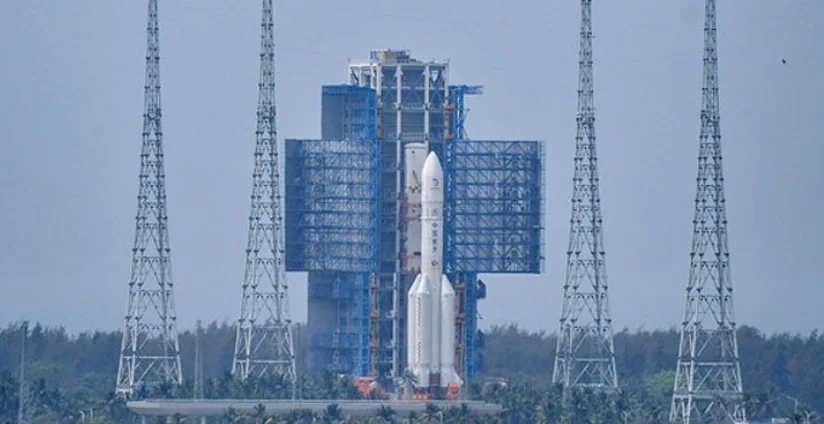Pakistan is all set to launch its first lunar mission, iCUBE, today. The project is a significant milestone for the country’s space exploration endeavors.

According to the Institute of Space Technology, the satellite ICUBE-Q has been designed and developed by IST in collaboration with China’s Shanghai University SJTU and Pakistan’s national space agency SUPARCO.
The launch activity was telecast live on the IST website as well as Chinese state television.
ICUBE-Q orbiter carries two optical cameras to image the lunar surface. Following successful qualification and testing, ICUBE-Q has now been integrated with the Chang’e6 mission.
Chang’e6 is the sixth in a series of China’s lunar exploration missions.
Chang’6, China’s Lunar Mission will touch down on the Moon’s far side to collect samples from the surface and return to Earth for research.
The mission holds significance for Pakistan as it will also take a Pakistan CubeSat Satellite iCube-Q, developed by IST.
The primary objective of iCUBE is to observe and study the lunar surface and its environment. It will carry various scientific instruments and payloads to collect data that will help in understanding the moon’s topography, mineral composition, and other geological features. This information will contribute to the global knowledge about the moon and aid future lunar exploration missions.
The development of iCUBE is a testament to Pakistan’s growing capabilities in space technology. It showcases the country’s commitment to advancing its space program and contributing to the international scientific community. The project has been a collaborative effort involving multiple organizations, including IST, the Space and Upper Atmosphere Research Commission (SUPARCO), and other academic institutions.
The launch of iCUBE marks a significant achievement for Pakistan in the field of space exploration. It demonstrates the country’s ability to develop and launch satellites for scientific research purposes. Moreover, it opens up new opportunities for Pakistan to participate in international space missions and collaborations.
The success of the iCUBE mission will depend on various factors, including the satellite’s deployment into orbit and its performance during its operational lifetime. Once in orbit, iCUBE will begin its mission of collecting data about the lunar surface, which will be transmitted back to Earth for analysis.
The iCUBE mission is not only a scientific endeavor but also a source of inspiration for the youth of Pakistan. It encourages young scientists and engineers to pursue careers in STEM (science, technology, engineering, and mathematics) fields and contributes to the development of a skilled workforce in the country.
In conclusion, Pakistan’s launch of its first lunar mission, iCUBE, is a significant milestone in the country’s space exploration journey. It represents Pakistan’s growing capabilities in space technology and its commitment to scientific research and innovation. The success of the iCUBE mission will not only contribute to our understanding of the moon but also inspire future generations of scientists and engineers in Pakistan.









